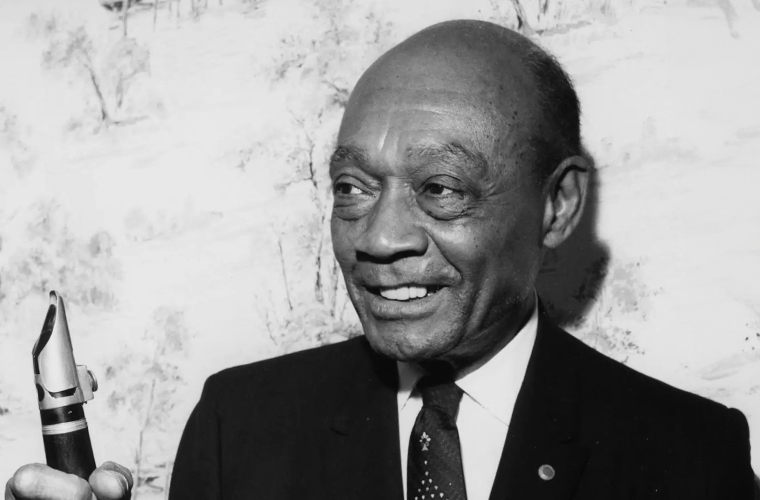Edmund Hall, born in 1901, was a renowned jazz clarinetist whose influence on the genre continues to be felt to this day. His unique style and virtuosity on the instrument set him apart from his contemporaries, and his contributions to the development of jazz music are immeasurable. Hall’s early years were spent in New Orleans, where he was exposed to the vibrant and diverse musical culture of the city. It was here that he first picked up the clarinet, and it quickly became apparent that he had a natural talent for the instrument. He honed his skills playing in local bands and ensembles, and by the time he was a teenager, he was already making a name for himself as a formidable clarinetist.
In the 1920s, Hall moved to Chicago, where he became a fixture in the city’s burgeoning jazz scene. It was here that he began to develop his distinctive style, which combined elements of traditional New Orleans jazz with a more modern and innovative approach. His playing was characterized by its technical precision, expressive phrasing, and soulful improvisation, and it quickly earned him a reputation as one of the most exciting and dynamic clarinetists in the country.






Throughout the 1930s and 1940s, Hall continued to make a name for himself as a leading figure in jazz music. He performed and recorded with some of the most influential musicians of the time, including Louis Armstrong, Teddy Wilson, and Billie Holiday. His collaborations with these artists helped to further solidify his reputation as a master of his craft, and his recordings from this period remain some of the most cherished and influential in the history of jazz.
One of Hall’s most enduring contributions to jazz music was his role in popularizing the clarinet as a lead instrument in jazz ensembles. Before his influence, the clarinet was primarily used as a supporting instrument in traditional jazz bands, but Hall’s innovative playing helped to elevate it to a more prominent position. His technical prowess and expressive playing style inspired countless other musicians to take up the clarinet, and his impact on the instrument’s role in jazz cannot be overstated.
In addition to his instrumental prowess, Hall was also a talented composer and arranger. He wrote numerous original compositions and arrangements for his bands, as well as for other prominent jazz ensembles of the time. His compositions were characterized by their sophisticated harmonies, inventive melodies, and infectious rhythms, and they further solidified his reputation as a leading creative force in jazz music.
Hall’s influence extended far beyond his performances and recordings. He was also a dedicated teacher and mentor, and he played a crucial role in shaping the next generation of jazz musicians. His workshops and masterclasses were attended by countless aspiring clarinetists, saxophonists, and other instrumentalists, and his insights and guidance continue to inspire young musicians to this day.
Despite his untimely passing in 1967, Hall’s legacy continues to be celebrated and honored by musicians and fans alike. His recordings remain essential listening for anyone interested in the history of jazz music, and his impact on the development of the clarinet as a jazz instrument is still felt in the performances of countless contemporary musicians. In recognition of his immense contributions to jazz music, Hall was posthumously inducted into the DownBeat Jazz Hall of Fame in 1979, cementing his status as one of the most influential and revered figures in the history of the genre.
In conclusion, Edmund Hall’s legacy as a jazz clarinetist continues to inspire and captivate music lovers around the world. His innovative playing style, influential compositions, and dedication to mentoring future generations have left an indelible mark on the world of jazz music, and his impact will continue to be felt for generations to come.

